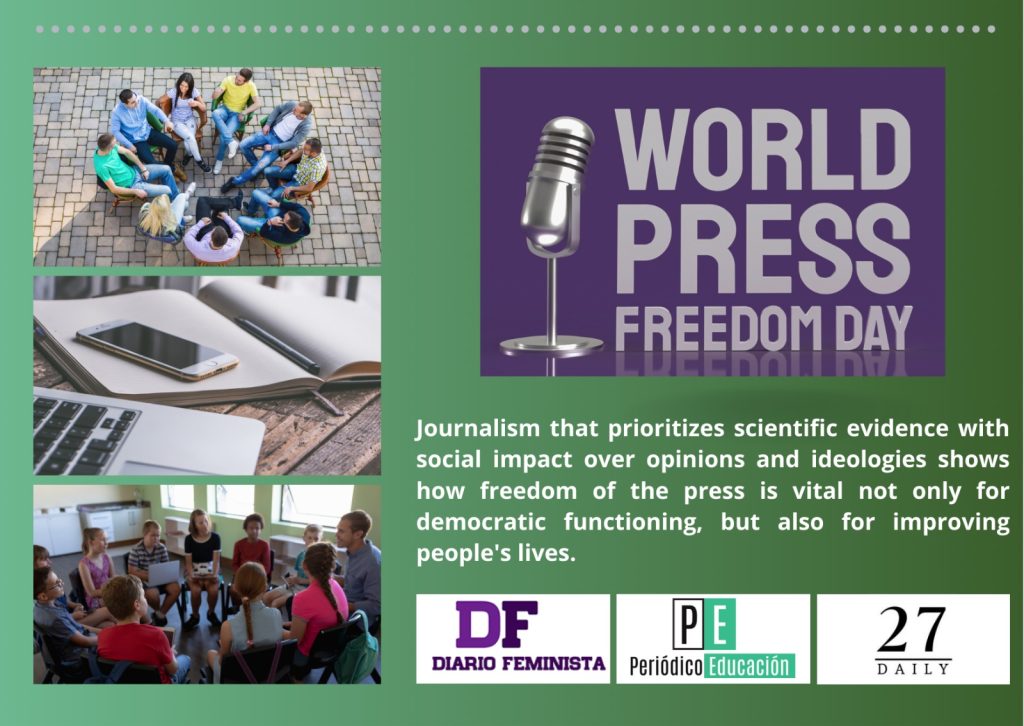World Press Freedom Day, celebrated every year on May 3rd, is a symbolic date to reflect on the fundamental role that free journalism plays in democratic societies. Established by the United Nations General Assembly in 1993, this day not only celebrates progress in press freedom, but also highlights the challenges and threats that journalists face in many parts of the world—often risking their lives.
Moreover, press freedom should not be understood solely as a right of journalists, but also as a right of all citizens to access information that is grounded in scientific evidence with social impact. In other words, everyone has the right to know what science is showing us can improve people’s lives and help address the challenges our societies face in areas such as health, gender, education, and social justice. In a world where misinformation and fake news spread easily, the role of journalism becomes even more relevant.
It is also essential that we communicate in an accessible language to foster a better understanding of scientific advances and promote literacy in various topics that directly affect people’s lives—such as public health, educational policies, and new technologies.
Journalism plays a crucial role in strengthening democracy, as it ensures that citizens stay informed about the events that impact their daily lives. Press freedom is, therefore, an essential right that must be protected to guarantee transparency, accountability, and access to information.
World Press Freedom Day is not only a time to reflect on the current state of press freedom, but also a reminder of the need to defend this right globally. Threats to press freedom are not just threats to journalists, but to society as a whole. When information is manipulated or censored, the social fabric is weakened and democracy itself is put at risk. For this reason, it is essential to recognize those journalists and media outlets who, despite the challenges and dangers, continue their work to inform the public. Their courage is an inspiration to many, and their work deserves our support.
In this regard, our newspapers will continue working every day to provide the public with the best available evidence in the fields of feminism, education, and human rights. This kind of journalism—which prioritizes scientific evidence with social impact over opinions and ideologies—demonstrates how press freedom is vital not only for democratic participation, but also for improving people’s lives and achieving the Sustainable Development Goals.



